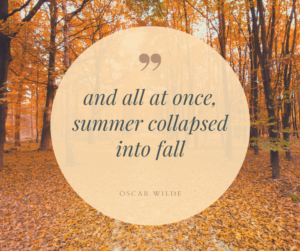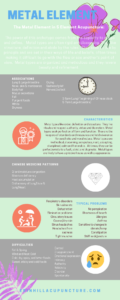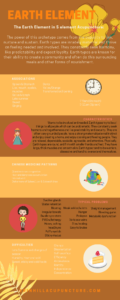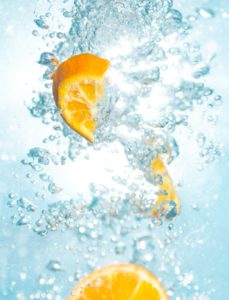Chronic pain, chronic illness, chronic stress… chronic you name it. All of these can wreak even more havoc on your life than you even know. It is a detrimental snowball effect that seems to roll dangerously out of control and begins to have an effect on your daily living, your mental health, your emotional health, your sleep patterns, your blood sugar, and really just all things health.
So, how do we manage something like chronic pain, naturally?

Top 10 Tips to Ease Chronic Pain Without Medication
Chronic pain isn’t an easy condition to handle, but you can take control. Simple changes in your lifestyle, diet, and exercise routines can help ease your pain.
Try these techniques to experience relief:
- Manage stress. Stress can increase chronic pain and make it more difficult to manage. Try a variety of strategies to relax and reduce stress to see which ones work the best for you.
- Yoga and meditation are two stress-reduction strategies that can help.
- Try breathing exercises. By simply focusing on your breathing, you can relax your muscles and reduce pain. Deep breathing exercises can also reduce blood pressure, eliminate stress, and decrease the heart rate.
- Find fun distractions. Instead of concentrating on the pain, try distractions that help you forget about it.
- Hobbies and activities such as watching your favorite movie or reading a new book can help. You may also want to try drawing, other art projects, or other creative outlets that help you fill your time and avoid thinking about the pain.
4. Increase your water intake. Dehydration can make chronic pain worse.
5. Avoid inflammatory food. Fast food and processed food can increase inflammation in your body, so your chronic pain also increases. Foods with a lot of sugar also contribute to inflammation and increased pain. At best, reduce or remove these things and see how much that helps. To make an even bigger difference, start to experiment with the biggest food sensitivity culprits such as eggs, dairy, gluten/wheat, corn & soy.
- Cut out nightshades (tomatoes, potatoes, eggplant, and peppers).
- Cut out oxalates – commonly helpful for treating migraines, kidney stones, and joint pain. (legumes, leafy greens, beans, beer, beets, berries, nuts, spinach, wheat bran).
- yeah yeah… this gets a little sad and very limiting… which is why I always suggest starting at the top and work your way into all of the more limiting diets).
- Add more anti-inflammatory food. On the other hand, nuts, leafy greens, fatty fish, berries, and other items can help you fight inflammation and reduce pain. They have antioxidants that fight damage on the cellular level.
- Focus on posture. Posture can help reduce the stress on your back and cut down on chronic pain.
- Consider the way you sit and stand. Experts recommend that you avoid slumping your shoulders and lowering your head. The spine should be straight, so circulation is better.
- Discuss your health. Researchers have found that talking about your health can reduce pain. The American Psychological Association points out that talking about your pain can help you discover management techniques.
- Try massage & acupuncture. Massages can reduce chronic pain by improving circulation and blood flow. Acupuncture is a great tool to manage inflammation, improve circulation, boost your mood (which has been shown to help with pain sensation), and ease pain.
- Find support. Health experts recommend finding support groups that focus on chronic pain. These groups give you the chance to meet others who suffer from chronic pain.
- They can offer advice and tips for managing pain. They can also provide doctor and clinic reviews or recommendations. By talking to others who have chronic pain, you can learn new techniques to deal with your pain.
- Chronic pain is linked to anxiety and depression. The social aspect of support groups can also help in coping with these side effects.
- Support groups are less formal settings, and online groups offer privacy and anonymity, so you can feel comfortable sharing your experience.
- In my own experience, I found some of my most helpful groups on Facebook (as much as I don’t really like that platform), these groups were where I learned the most and felt I found a community that understood my journey, which was extremely helpful to me.
Even if you take medication for your pain, you can further reduce it with these techniques. Follow your doctor’s advice, reduce stress and inflammation, and find support, and you’ll feel the pain relief you’ve been seeking.
If you are dealing with chronic pain, life can feel overwhelming at times and a little dark. Your self-care and awareness are extremely important. Implementing any of these above tips can feel daunting at first, so start small, just start somewhere and incorporate pieces of it every day.
We are each on our own healing journey, have different diagnoses and circumstances, so set realistic goals for yourself and keep at it. You may notice quick and mind-blowing results and it may be a slow road to feeling better. I can tell you this, it will be worth it, there is never any downside to adopting these strategies and practicing healthy habits.
Over time, you will be better managed and have more and more moments, hours, and days of feeling better and decreasing your overall pain, if not eliminating it. The awareness surrounding your stress, foods, and environment is also super empowering and helps two-fold, giving you some sense of control over the chronic pain and easing your symptoms.
Till next time ~ be well







